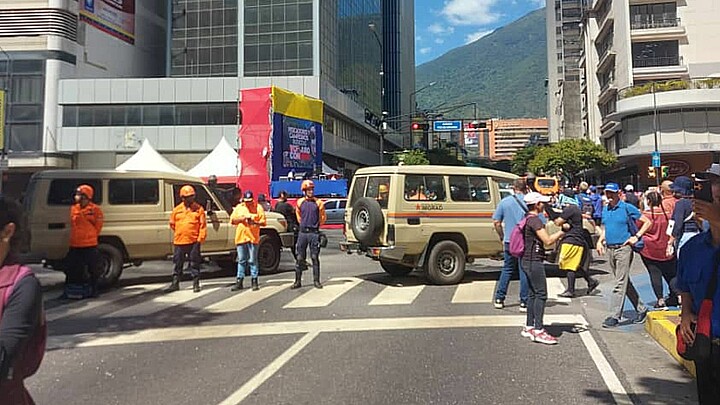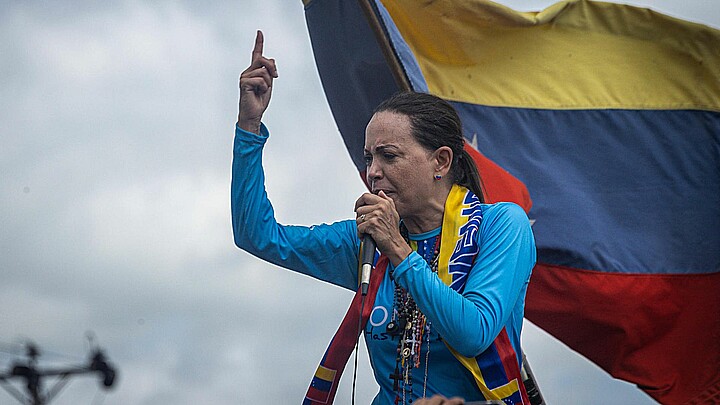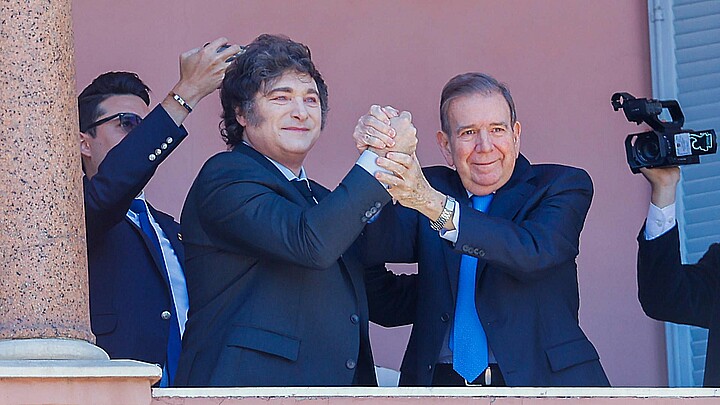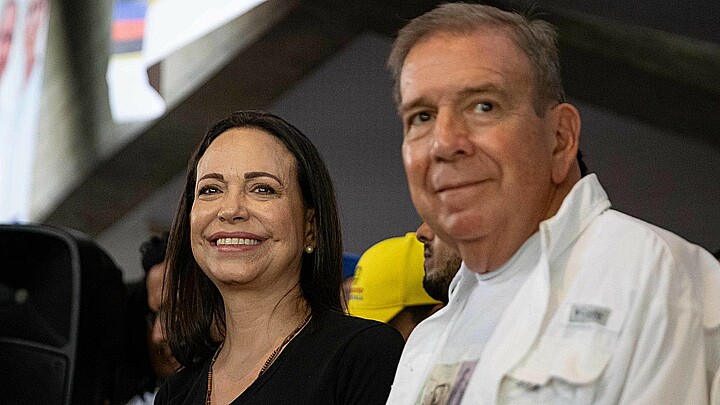Politics
Brazil and Colombia demand Maduro keep promise to hold democratic elections in Venezuela
Brasilia and Bogotá said the elections on July 28 are the opportunity to “strengthen” democracy in Venezuela, as was agreed in Barbados

March 27, 2024 11:48am
Updated: March 29, 2024 8:33am
Brazil and Colombia joined the chorus of criticism from the United States, the European Union and other countries about the Maduro’s regime’s attempts to hamper the opposition’s participation in the upcoming 2024 Venezuelan electoral process.
Brasilia and Bogotá pointed out that the July 28 elections are an opportunity to “strengthen” democracy in Venezuela, as was agreed when the Barbados Agreement was signed by Maduro and pro-democracy opposition leaders in October 2023.
The Brazilian government, under the leadership of President Gustavo Petro, expressed its concern on Tuesday about the development of the electoral process, raising concerns of how the Maduro regime has blocked candidates from the opposition Unitary Platform.
“Based on information available, it has been observed that the opposition candidate nominated by the Unitary Platform (Corina Yoris), was prevented from registering, which is not compatible with the Barbados agreements. To date, there has been no official explanation about the impediment,” Brazil said in a statement published by the Ministry of Foreign Affairs.
The statement also said that Brazil and other members of the international community were prepared “to collaborate to ensure that the election scheduled for July 28 is a firm stem toward normalizing life and bolstering democracy in Venezuela, a neighboring country and friend of Brazil.”
Colombia also released a statement aimed at the Maduro regime, urging compliance with the Barbados Agreement.
Comunicado de prensa del Ministerio de Relaciones Exteriores de Colombia
— Cancillería Colombia (@CancilleriaCol) March 26, 2024
Bogotá, marzo 26 de 2024. 🧵👇 pic.twitter.com/o05ufbo5RD
“Colombia expresses its concern about the recent events that occurred on the occasion of the registration of some presidential candidates, particularly in relation to the difficulties faced by majority sectors of the opposition,” reads a statement from the Colombian Foreign Ministry reads.
The deadline for registering political candidates in the Venezuelan presidential elections came to a close Monday night, and the Venezuelan dictatorship confirmed that same evening that the nomination and registration of candidates officially closed, causing the Unity card to be left without a candidate for the presidential elections.
Allies of democracy were alerted when they realized that philosophy university professor Corina Yoris, the new Unity representative of opposition leader María Corina Machado was excluded from the election process.
“Nicolás Maduro has NEVER allowed us to be given access to the nomination system to be able to register the UNIDAD candidacy. The vast majority of the people want to vote to achieve change for Venezuela with the power of the vote,” the coalition denounced in a statement, demanding a 72-hour extension “due to the flagrant violation of our rights.”
Maduro’s communist regime lashed out against his Brazilian neighbor for the criticism, accusing President Luiz Inacio Lula da Silva’s government of acting as a puppet of the United States.
In a statement released by Venezuelan Ministry of Foreign Affairs, the Mauro regime said the Brazilian message “seems to have been dictated by the U.S. State Department.”
The communique added that “the Venezuelan government has remained faithful to the principles that govern diplomacy to maintain friendly relations with Brazil. Under no circumstances does it or will it issue judgments on the political and judicial processes taking place in their country. Consequently, Venezuela has the moral authority to demand the strictest respect for the principle of non-interference in internal affairs and in our democracy—one of the most robust in the region.
Still, the Maduro regime statement is inconsistent with international observations about the level of political repression taking place in the communist country.
ADN recently reported that Freedom House recently ranked Venezuela and Nicaragua as two of the lowest in the world in terms of its political rights and civil liberties. The South American country received a dismal score of 1 in 40 for political rights and only 15 out of 60 for civil liberties.
“Venezuela’s democratic institutions have been deteriorating since 1999, but conditions have grown sharply worse in recent years due to harsher government crackdowns on the opposition and the ruling party’s use of thoroughly flawed elections to seize full control of state institutions,” a new 2024 report on the country reads.
“The authorities have closed off virtually all channels for political dissent, restricting civil liberties and prosecuting perceived opponents without regard for due process. Although the country’s economy has returned to growth after years of recession, a severe, politically driven humanitarian crisis continues to cause hardship and stimulate mass emigration.”
The report then noted the following developments on the Maduro regime’s attempts to stifle the democratic election process:
- In October, it was announced that the Maduro regime had agreed to make certain democratic concessions in exchange for the United States (US) government easing some sanctions on Venezuela. Among other things, the Maduro regime agreed to release a number of political prisoners and to allow independent observers to monitor elections scheduled for 2024.
- In June, opposition presidential candidate María Corina Machado was banned from running for elected office on spurious grounds, which included purported irregularities in a declaration of assets she made in 2015 while a legislator. Machado, who won the opposition’s October presidential primaries, appealed the ban in December.
- Also in June, several members of the government-controlled National Electoral Council (CNE) unexpectedly resigned; the head of the National Assembly later announced that legislators would reappoint the entire 15-seat body ahead of the 2024 elections. Legislators selected new CNE members in August, preserving a progovernment majority on the council.
- The absence of a functioning CNE prevented the official administration of opposition primaries, contributing to the opposition’s decision to “self-manage” its October presidential primaries. Days after the primaries, the Supreme Tribunal of Justice (TSJ) ruled that the opposition’s primary process had been illegal and suspended the results of the vote.
The 2024 Freedom House report also notes that the Venezuelan electoral process has been “heavily influenced” by “political manipulation” and pro-PSUV [Maduro’s political party] institutional interference.”











